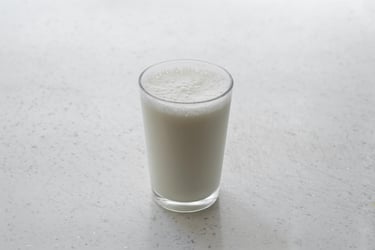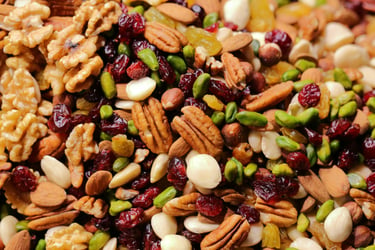The Importance of a Plant-Based Diet and Essential Nutrients
A plant-based diet focuses on whole, natural foods from plants such as fruits, vegetables, whole grains, legumes, nuts, and seeds, while minimizing or avoiding animal products. It is rich in essential nutrients like fiber, vitamins, minerals, antioxidants, and healthy fats, which support overall health, boost energy, and reduce the risk of chronic diseases. Balanced correctly, a plant-based diet can provide all the necessary protein, iron, calcium, and omega-3s the body needs for strength and vitality.
8/15/20253 min read


The Importance of a Plant-Based Diet
and Essential Nutrients
In recent years, the plant-based diet has gained significant attention, not only for its potential health benefits but also for its impact on the environment. Adopting a diet that emphasizes fruits, vegetables, whole grains, legumes, nuts, and seeds can lead to various health advantages, including improved heart health, weight management, and enhanced overall well-being. However, it is imperative to understand the essential nutrients that must be consumed to maintain optimal health while following a plant-based regimen.
Nutritional Considerations in a Plant-Based Diet
One of the most pressing concerns regarding a plant-based diet is the adequacy of essential nutrients. While many necessary nutrients can be obtained from plant sources, some are less abundant and require careful planning. Here are some key nutrients to consider:
Protein :
Contrary to popular belief, protein can be easily obtained from plant sources. Foods such as lentils, chickpeas, quinoa, tofu, tempeh, and nuts provide substantial amounts of protein. It’s important to consume a variety of these foods to ensure a complete amino acid profile.


Vitamin B12 :
This vitamin is primarily found in animal products, so individuals on a plant-based diet should consider fortified foods or supplements. Vitamin B12 is crucial for nerve function and the production of DNA and red blood cells.


Iron :
While plant-based sources of iron, such as beans, lentils, and spinach, are available, they contain non-heme iron, which is less readily absorbed by the body than the heme iron found in animal products. Including vitamin C-rich foods like citrus fruits or bell peppers can enhance iron absorption.


For those who do not consume dairy, there are several plant-based sources of calcium, including fortified plant milks, tofu, almonds, and leafy greens. Adequate calcium intake is essential for bone health.
Calcium :


Omega-3 Fatty Acids :
These healthy fats are generally found in fish, so it is important for those on a plant-based diet to include sources such as flaxseeds, chia seeds, walnuts, and hemp seeds. Alternatively, consider an algae-based omega-3 supplement.


Zinc :
Plant sources of zinc, including legumes, nuts, and seeds, can provide this essential mineral, though they may require larger portions to meet the recommended daily intake compared to meat sources.


Conclusion :
A well-planned plant-based diet can provide all the necessary nutrients for a healthy and fulfilling lifestyle. However, individuals should remain vigilant in monitoring their nutrient intake to avoid deficiencies. It is advisable to consult with a healthcare professional or a registered dietitian to create a balanced meal plan tailored to your specific needs. By prioritizing whole, minimally processed foods and understanding the importance of various nutrients, you can thrive on a plant-based diet while nourishing your body and contributing positively to the environment.
Embrace the benefits of a plant-based lifestyle—it’s not just a dietary choice; it's a commitment to health and sustainability.
